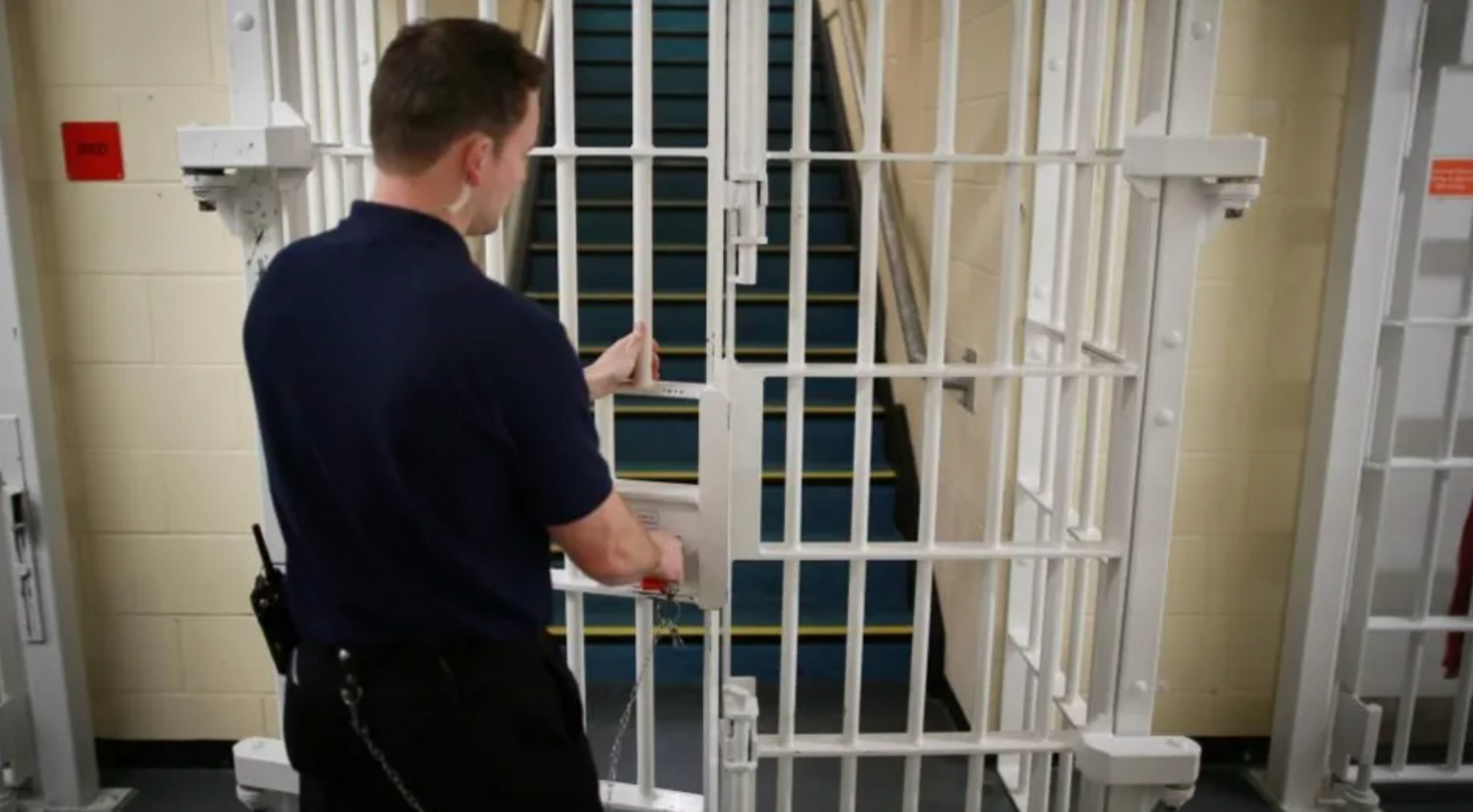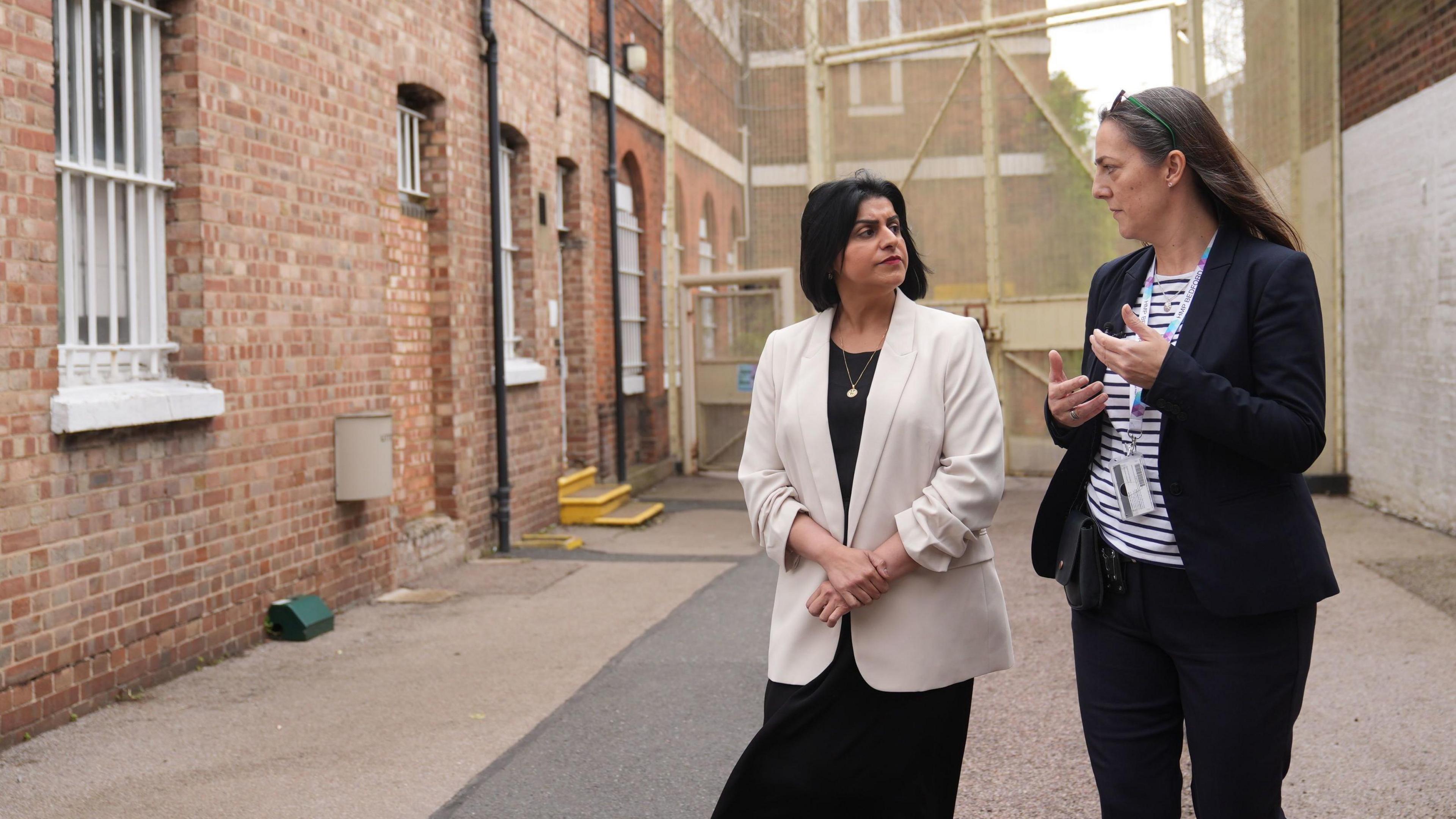Prison population hits record high after riots

- Published
The prison population in England and Wales has hit a record high in the wake of last month’s disorder.
There are 88,350 people in jails - a rise of 998 in just a month - according to data released by the Ministry of Justice (MoJ) on Friday.
The figures confirm the record was passed after 116 people were jailed in the last week, taking the prison population to its highest level since weekly figures were first published in 2011.
Confirmation of the sharp rise comes 10 days before the start of an emergency early release scheme for some prisoners, which is being implemented to ease overcrowding.
BBC News understands that at one point this week there were fewer than 100 spare cells across the whole of England and Wales.
That was partly the result of an annually-occurring spike in the population because prisons do not routinely release offenders over the August Bank Holiday.
Spare capacity rose to around 500 beds as releases resumed later in the week.

Justice Secretary Shabana Mahmood authorised an early release scheme in July
Confirmation of the prison population record comes as officials prepare to begin to release some offenders on licence who have spent 40% of their sentence in jail.
That scheme, initially worked on by outgoing Conservative ministers but implemented by Labour, begins on 10 September as a means of freeing up around 5,500 beds to hold newly-sentenced criminals.
It excludes people convicted of sex offences, terrorism, domestic abuse and some violent crimes.
Some of those places are expected to be rapidly taken up by people who have been charged or convicted of offences related to recent rioting.
Figures from the National Police Chiefs' Council show that almost 500 of the 1,280 people arrested since that disorder have not been charged or sent to court yet.
The body said on Friday morning that forces had identified “hundreds more suspects” on top of those already arrested.
Emergency plans to delay prison arrivals
Two additional emergency plans intended to manage the flow of offenders into prisons have already been triggered.
Police forces across northern England and most of the Midlands can delay sending some newly-charged suspects to court until prison officers have identified a cell for them.
At the same time, a senior judge has told 150 magistrates' courts to delay the sentencing of some offenders who are on bail, if it is likely the individual would be jailed.
A spokesman for the MoJ said: “Staff across the whole criminal justice system are working incredibly hard and the government will continue to support them before the changes come into effect on 10 September.”
The department also said it is opening up 500 additional prison places in the coming weeks.
However, once the early release scheme begins, public attention will turn to whether the offenders can be safely managed in the community.
Martin Jones, the chief inspector of probation, warned this week that it was “inevitable that things will go wrong” as the number of offenders who are being monitored and managed outside prison suddenly jumps.
He told the Times newspaper there was “no risk free options available” but probation officials had been given a “fighting chance” to get it right by the way the scheme’s implementation had been planned over the summer.